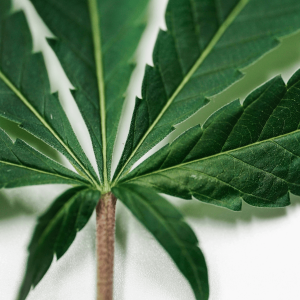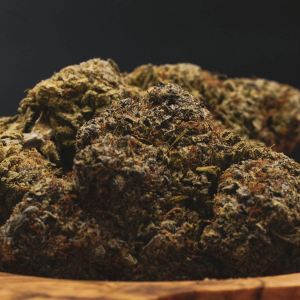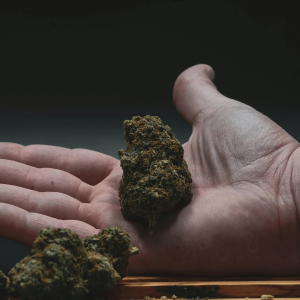Welcome to the wild and wonderful world of cannabinoids! If this sounds like a spell from a wizard’s book, you’re not too far off—there is indeed a touch of magic in these compounds.
Meet the stars of today’s show: CBD vs CBG vs CBN. These little compounds are gaining quite the celebrity status as nationwide hemp consumption grows… and grows… and grows.
CBD, or cannabidiol, has become extremely popular in the wellness industry, chosen for its potential calming effects. CBG, or cannabigerol, might not be as famous, but it’s building a quiet reputation for its potential benefits and could soon join the ranks of its superstar cousins. Then there’s CBN, or cannabinol, which, like the wise old owl, patiently awaits its turn in the spotlight with promises of restful slumber.
As more people become interested in natural wellness solutions, the curiosity around these cannabinoids is skyrocketing. In this blog, we’ll explore the reasons behind their surge in popularity and dig into the benefits and differences between these compounds.
What Are Cannabinoids?
Cannabinoids are the naturally occurring chemical compounds that basically give cannabis its personality and flair. There are over a hundred types of cannabinoids, each with its own distinctive effects and potential benefits.
Cannabinoids play a leading role in modulating various physiological systems in the human body, like mood, memory, and appetite. They are primarily produced in the plant’s resin glands, better known as trichomes, nestled comfortably amid the leaves and flowers. These compounds interact with our body’s endocannabinoid system to maintain homeostasis.
Through their complex interactions, cannabinoids hold the key to many therapeutic applications, inviting us all to explore their vast potential.

Understanding CBD (Cannabidiol)
What is CBD?
Consider CBD, or cannabidiol, is among the two most commonly found cannabinoids. Unlike its notorious sibling, THC (tetrahydrocannabinol), CBD won’t get you high but will offer numerous wellness possibilities.
Extracted primarily from hemp plants, CBD is non-psychoactive and is revered for its potential therapeutic effects. It can be found in a plethora of products, from oils and tinctures to gummies and even beauty products, all promising to offer a slice of calm in today’s bustling world.
Popularity and Uses of CBD
The meteoric rise in CBD’s popularity isn’t just a coincidence. In fact, people are gravitating towards CBD for its rumored ability to ease anxiety, reduce pain, and even improve sleep.
You’ll find CBD in everything from artisanal chocolates to fluffy pillows (Yes, you read that right!), each claiming a bit of tranquility in an otherwise chaotic life. Whether you’re stressed from your third Zoom call of the day or searching for post-workout relief, CBD appears to be a jack-of-all-trades.
Legal Status and Availability
Ah, the legality of CBD—it’s as complex as a jigsaw puzzle with a few missing pieces. Thanks to the 2018 Farm Bill, hemp-derived CBD is federally legal in the U.S. as long as it contains less than 0.3% THC. However, legality can vary from state to state, so always check local laws before you snag a bottle.
Despite these intricacies, CBD products have become widely available in health stores, online marketplaces, and even some gas stations—making CBD almost as accessible as your favorite snack food.
Benefits of CBD
CBD is like that all-encompassing balm your grandmother used for any ailment; it’s believed to offer relief for a myriad of issues.
Commonly touted therapeutic uses include reducing anxiety, managing pain, and improving sleep quality. It’s also considered a potential anti-inflammatory agent, making it popular among those suffering from arthritis or inflammation-related conditions.
Research-Backed Health Benefits
The legitimate science behind CBD is building a robust foundation. Recent studies suggest CBD may have significant anti-seizure properties and is even approved in a drug called Epidiolex for rare forms of epilepsy.
Preliminary research also indicates its potential in treating anxiety disorders and providing neuroprotective effects, which has spurred interest in its use for conditions such as schizophrenia and Parkinson’s disease.
Though the research is promising, further studies are needed to fully substantiate these claims.
Side Effects and Precautions with CBD
Potential Side Effects
- Dry mouth
- Drowsiness
- Low blood pressure
- Diarrhea
- Changes in appetite
Who Should Avoid CBD
Though CBD is typically well-tolerated, it’s not for everyone and some should exercise caution. Pregnant or breastfeeding women are advised to avoid CBD until more research is available. If you’re taking medications that come with a grapefruit warning—since CBD can disturb liver enzymes—it’s also wise to consult a healthcare professional before diving in.
Additionally, individuals with liver conditions should tread carefully and consider medical guidance when incorporating CBD into their wellness routine.
Understanding CBG (Cannabigerol)
What is CBG?
CBG, or cannabigerol, is often termed the “mother of cannabinoids” because it acts as a precursor to other cannabinoids like CBD and THC. While it’s present in much smaller quantities within hemp plants and cannabis plants than its more popular cousins, its effects are quickly gaining attention.
Where CBD is celebrated for its calming properties without the high, CBG is valued for its potential potency in combating inflammation and bacteria. This comparison places CBG as a potential heavyweight in therapeutic applications, similar to CBD, but with distinct differences that may yield unique benefits.
Benefits of CBG
CBG is carving out a niche as an emerging favorite in the realm of natural wellness thanks to its promising applications. Some of its notable benefits include supporting inflammatory pain and inhibiting bacterial growth, contributing to its potential therapeutic value.
Recent research also suggests that CBG might play a role in neuroprotection and appetite stimulation. Its moniker as the “mother of cannabinoids” is fitting due to its foundational role in cannabinoid synthesis, with its derivatives carrying on its multifaceted potential into various applications.
Side Effects and Precautions with CBG
Known Side Effects
- Dry mouth
- Drowsiness
- Fatigue
- Changes in appetite
While CBG is still in the early stages of scientific exploration, preliminary studies indicate it’s generally well-tolerated. Usage guidelines suggest starting with a low dose to assess individual tolerance before gradually increasing it.
As with any supplement, especially one seeking the spotlight, those with existing medical conditions or those on medication should consult a healthcare provider to ensure CBG is a suitable addition to their wellness regimen.

Exploring CBN (Cannabinol)
What is CBN?
CBN, or cannabinol, is a cannabinoid that emerges as THC, the compound infamous for its psychoactive effects, undergoes degradation. Think of it as THC’s mellowed-out cousin—kind of like the “retired rebel” of cannabinoids.
Found in aged cannabis, CBN comes to life when THC is exposed to heat and oxygen over time, converting into a less intoxicating, unique compound. As THC gradually breaks down, CBN surfaces with its own bag of potential tricks, distinct from the more famous cannabinoids like CBD and THC.
Benefits of CBN
CBN is generating buzz for its sedative properties, positioning itself as the cannabinoid of choice for those looking to use cannabis as a means of achieving high quality sleep. While research is still in its infancy, anecdotal evidence suggests CBN may help improve sleep quality, making it attractive to those battling insomnia or seeking restful nights.
Beyond sleep, CBN is being eyed for its possible anti-inflammatory properties and pain-relieving properties, but the jury is still out as scientists work to dig deep into its full therapeutic potential. In essence, CBN is the new kid on the cannabinoid block that’s carving a niche with potential sleep aids as its primary claim to fame.
Side Effects and Precautions with CBN
When considering CBN, it’s essential to pack some caution with your curiosity. While generally deemed safe, some potential side effects include drowsiness and potential dizziness, so it might be best to give it a whirl when a nap is on your schedule.
Another key point is ensuring there’s no clash with other medications, particularly those that warn against mixing with grapefruit, as CBN can influence liver enzymes.
As with any cannabinoid exploration, it’s wise to consult with a healthcare provider, particularly if existing medical conditions or medications are in the mix—steering clear of any unplanned detours on your wellness journey is always a good idea!
The Battle: CBD vs CBG vs CBN
When it comes to taking sides in the cannabinoid arena, CBD, CBG, and CBN each flaunt unique strengths and characteristics.
At first glance, CBD is the superstar of the trio, renowned for its relaxing impact and anti-seizure capabilities. Meanwhile, CBG is often spotlighted for its potential use in managing inflammation and fighting off bacteria, earning it a place under the therapeutic spotlight. Then we have CBN, the sleep-promoter who’s quickly gaining popularity among those seeking restful nights without the hangover of THC’s euphoric effects.
Despite their individual strengths, these cannabinoids share some common ground. None induce the psychoactive high attributed to THC, making them appealing options for users looking to harness cannabis’s benefits sans intoxication. Tailoring the right cannabinoid for specific needs involves understanding these differences and experimenting to find the ideal match for one’s wellness journey.
Efficacy and Potency Comparison
With regards to effectiveness, each cannabinoid distinguishes itself through its body interactions. CBD has carved a niche in managing anxiety and providing neural protection, while CBG boasts valid claims in inflammation reduction and bacterial inhibition. Meanwhile, CBN appears to excel as a sleep aid and pain management.
Notably, although the efficacy of each depends on individual body chemistry, these cannabinoids often complement each other, offering synergistic benefits when used together. As researchers unfold more about their potential, users are tapping into specific blends of these cannabinoids to optimize therapeutic outcomes.
Market Presence of CBD, CBG, and CBN
In the billion dollar industry of wellness products, the presence of CBD, CBG, and CBN is growing rapidly. While CBD products — from oils to gummies — occupy widespread aisles everywhere due to their popularity and established reputation, CBG and CBN are beginning to make a name for themselves, featured in niche products like sleep aids and specialized skincare items.
Consumer trends indicate a steady interest in these newcomers, driven by curiosity and their potentially unique benefits. As the research snowball continues to roll, the market sees ongoing shifts in preference, with users eagerly exploring how each cannabinoid can offer tailored benefits to enhance their individual well-being.

Cannabinoid Synergy: The Entourage Effect
The entourage effect is a fascinating theory in the cannabis world. It suggests that when cannabinoids like CBD, CBN, and CBG are combined with other plant compounds such as terpenes and flavonoids, they can produce more potent and unpredictable results than when used alone.
Much like an orchestra where each instrument contributes to the symphony, other cannabinoids and terpenes work in harmony to amplify the therapeutic effects and offer a richer experience. By pairing CBD, CBG, and CBN together, users could enjoy a broader spectrum of benefits, potentially enhancing pain relief, sleep quality, and mood regulation.
For instance, combining CBD’s soothing properties with CBG’s anti-inflammatory potential could create a holistic approach to stress relief and wellness management. This synergistic dance allows for customized solutions, targeting multiple health concerns simultaneously while optimizing each compound’s contribution to well-being.
Choosing the Right Cannabinoid for You
Selecting the perfect cannabinoid combo can be a perplexing puzzle, but here are some key considerations to guide you:
- Health Needs: Identify what you’re hoping to address—be it stress, sleeplessness, or chronic pain relief.
- Psychoactivity: Keep THC out if you want to avoid psychoactive effects—CBD, CBG, and CBN fit the bill.
- Combination Effect: Explore combinations to gain a broader range of benefits or synergy.
Aligning cannabinoid choices with one’s health goals involves understanding these nuances to tailor a personalized wellness plan. Begin with primary health objectives, such as improving sleep or reducing joint inflammation, then explore individual cannabinoids known for addressing these issues.
Experimentation and patience can reveal the ideal blend, crafting an approach as unique as your health journey itself.

CBD vs CBG vs CBN: Conclusion
As our cannabinoid caper comes to a close, let’s hit the rewind button and sum up our journey.
We’ve seen CBD play the relaxing superstar, while CBG and CBN strutted their therapeutic stuff with inflammation-battling and sleep-inducing powers, respectively. Each cannabinoid exhibits unique benefits, making them all well-suited for crafting personalized wellness adventures.
Remember, the entourage effect showed us that when cannabinoids dance together, their combined might amplifies potential benefits, offering a more comprehensive solution for individual needs.
But, before you dive deep into the world of cannabinoids, it’s crucial to arm yourself with knowledge and consult healthcare professionals to navigate potential interactions and effects. By taking a mindful approach, you can harness the full spectrum of what cannabinoids have to offer, crafting a health and wellness journey that’s as unique as a snowflake, yet much warmer and fuzzier.

Frequently Asked Questions
1. What is the difference between CBN, CBD, and CBG?
Imagine cannabinoids as unique characters in a wellness sitcom. CBD is the laid-back, calm one investing heavily in stress-relief shenanigans. CBG is the active hero, jumping into action with anti-inflammatory gadgets and bacterial-fighting moves. Meanwhile, CBN is the sleepy sidekick, waving its magical sleep-inducing wand during those restless nights. Each cannabinoid serves a different purpose, catering to various health needs without the high of THC.
2. Is CBG or CBN better for anxiety?
When it comes to an anxiety showdown, hemp plant-derived CBD is often in the limelight thanks to its notable calming talents. However, CBG is no slouch in this department and might bring some anti-inflammation benefits to the anxiety-relief party. CBN, while the king of snooze, isn’t the top pick for anxiety but works great if a good night’s rest is your anxiety antidote.
3. Is CBG stronger than CBD?
In the cannabinoid strength arm wrestling match, neither CBG nor CBD wins outright; it’s more about who flexes the right muscles for your health goals. CBD often takes the main stage for stress and anxiety, while CBG is celebrated for its additional benefits like antimicrobial properties. “Stronger” depends on what you’re measuring!
4. Which is stronger, CBD or CBN?
When you ask which is stronger, CBD or CBN? It’s like asking if a pillow or a cup of chamomile tea is stronger. It all depends on the need—for chilling vibes and anxiety relief, CBD takes the lead, but if your sleep is more endangered than a mythical creature, CBN might be your go-to snooze solution.

 Rewards
Rewards




